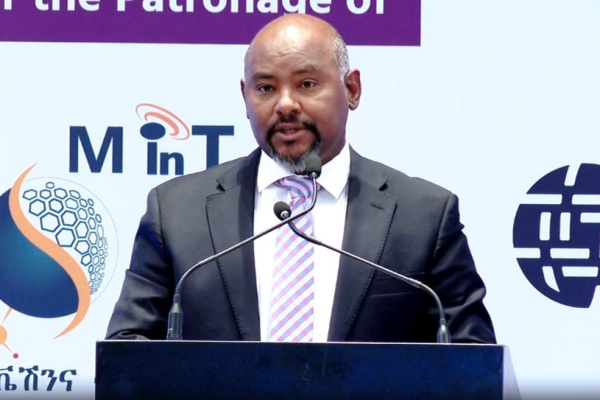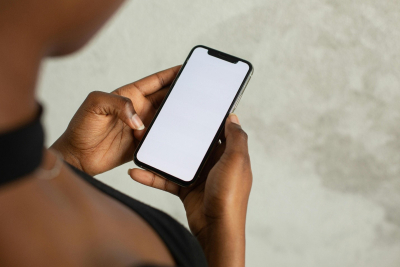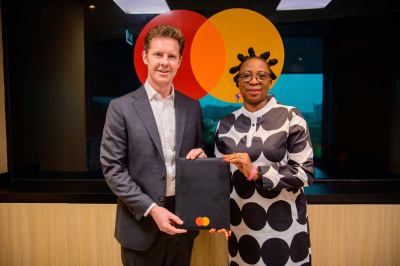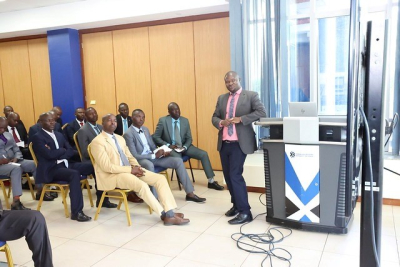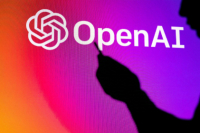
Telecom (150)
The government has ambitious goals for the digital economy this year, with expanding high-speed connectivity at the forefront. Improving and expanding high-speed internet access is a top priority. While fiber optics remain crucial, the government is also exploring other technologies to achieve this goal.
Guinea is moving closer to launching a satellite to strengthen its digital sovereignty and technological capabilities.
On Friday, January 24, Rose Pola Pricemou, Minister of Posts, Telecommunications, and the Digital Economy, met with a delegation from AirSAT Technology, a Chinese company specializing in commercial satellite solutions, to discuss potential collaboration on the project.
According to a ministry statement, the satellite project aims to facilitate large-scale data transmission and lay the groundwork for technological skills transfer in the aeronautics sector. The initiative also includes plans to train local engineers to manage processes related to the operation and maintenance of satellite technologies.
This initiative aligns with Guinea's push for digital sovereignty. Such a project could be a turning point for the country, equipping it with a critical tool to modernize its telecommunications and reduce dependence on foreign infrastructure.
According to Space in Africa’s 2023 Annual Report on the African space industry, the sector was valued at $19.49 billion in 2021, with projected growth of 16% by 2026, reaching $22.64 billion.
By pursuing this ambition, Guinea could join the ranks of African nations leveraging space technologies to support their development. To date, nearly fifteen African countries have invested over $4.71 billion in 58 satellite projects, with further developments underway. Nations such as Nigeria, South Africa, and Kenya are already utilizing their satellite capabilities to enhance internet connectivity, monitor climate change, and optimize natural resource management.
By Samira Njoya,
Editing by Sèna D. B. de Sodji
With over 120 million inhabitants, Ethiopia has an immense digital potential.
The country is actively working to expand internet access, modernize its infrastructure, and embrace innovative technological solutions.
Ethiopia is working to accelerate internet development and bridge the digital divide, Minister of Innovation and Technology Belete Molla said on Monday. Speaking at the opening of the Internet Development Conference (IDC), Molla emphasized the government's commitment to building an inclusive and dynamic digital ecosystem for all citizens.
The Digital Ethiopia 2030 strategy will serve as a roadmap for this effort, guiding the modernization of internet infrastructure, raising digital literacy awareness, and promoting responsible technology use. The government also aims to collaborate closely with member countries of the Intergovernmental Authority on Development (IGAD) to improve connectivity in remote areas and ensure equitable and secure internet access.
Ethiopia has made significant progress in recent years. 4G coverage now reaches 34.8% of the population, and 5G services are available in 14 cities. The country currently boasts 80.5 million mobile subscribers and 45 million broadband users. Innovative solutions like Telebirr, a mobile payment service with 51.54 million users, demonstrate the potential of digital technology to drive financial inclusion and transform economic transactions.
The GSMA's Digital Economy Ethiopia Report forecasts further growth in connectivity, with more than 50 million Ethiopians expected to be connected to mobile internet by 2028, nearly double the current figure. This increased connectivity could contribute approximately $2.5 billion to the agricultural sector and $2 billion to the manufacturing industry by 2028.
These advancements are expected to solidify Ethiopia's role as a driver of digital transformation within the IGAD region while delivering sustainable economic and social benefits for its citizens.
By Samira Njoya,
Editing by Sèna D. B. de Sodji
Interoperability between banks and non-banking financial service providers makes financial services more accessible to unbanked and underbanked populations. As many Africans remain unbanked, integrating digital payment solutions into everyday transactions can help bridge the gap between the banked and unbanked.
The Kingdom of Eswatini has launched the Eswatini Payment Switch (EPS), a platform enabling real-time, interoperable transactions across banks and non-banks. Paylogic, the provider behind its development, announced the rollout on January 7.
Commenting on the development, Mohamed Mekouar, Executive Chairman of PayLogic said, "We are honored to partner with the Central Bank of Eswatini in this transformative project. The Eswatini Payment Switch is a testament to our commitment to advancing digital payments and financial inclusion across Africa."
The EPS marks a significant step toward creating a cash-lite economy by reducing dependency on cash transactions. The system allows payments to be processed within seconds, ensuring seamless, 24/7 service availability, including weekends and holidays.
The EPS enhances interoperability among financial institutions, fostering a more inclusive and interconnected financial ecosystem. This innovation is expected to drive financial inclusion and digital transformation, enabling individuals and businesses to access faster and more secure payment services.
This initiative aligns with Eswatini's broader push to modernize its payment infrastructure, drive economic growth, and expand financial access for its citizens. The country has made notable progress in embracing digital payments, led by the Central Bank of Eswatini (CBE) through its National Payment System (NPS) Vision 2025, which focuses on achieving interoperable, real-time, and 24/7 payment capabilities.
By ensuring interoperability and real-time processing, the platform positions Eswatini as a leader in embracing digital financial solutions in the region.
Hikmatu Bilali
Africa is experiencing a rapid shift toward digital payments, fueled by increased smartphone penetration and internet usage. Mastercard’s expertise in secure and scalable payment systems can complement and enhance these existing platforms.
Mastercard has opened its first office in Accra, Ghana, a key step in its West Africa expansion. This move, announced yesterday January 13, reflects its commitment to supporting Ghana’s digital economy through innovative financial products and services tailored to the local market.
“Opening our office in Ghana marks an important milestone in our commitment to deepening relationships across the region. Our growth strategy for West Africa is ambitious, and establishing a formal presence here allows us to better serve the specific needs of our customers,” said Mark Elliott, Division President for Africa at Mastercard.
The new office underscores Mastercard’s dedication to fostering stakeholder relationships and promoting inclusive growth. By establishing a presence in Ghana, Mastercard aims to enhance collaborations and accelerate the adoption of tailored financial solutions.
Beyond the office, Mastercard has collaborated with companies like Kalabash, KaiOS, Boost, and Smile ID, and partnered with banks such as Access Bank and Fidelity Bank to improve cross-border payment solutions. These efforts have empowered fintechs, expanded digital access for underserved communities, and strengthened Ghana’s position as a tech hub.
Mastercard’s office in Accra is a strategic response to the growing demand for secure, efficient, and inclusive financial solutions in Ghana and West Africa. By leveraging its global expertise and fostering local partnerships, Mastercard is set to play a pivotal role in transforming Ghana’s financial landscape and contributing to the region’s digital future.
The 2021 Financial Services Demand-Side Survey Report by the Ministry of Finance reveals that Ghana has achieved a remarkable 96% financial inclusion, leaving only 4% of the population without access to financial services. This significant progress is primarily driven by the widespread adoption of mobile money nationwide. It underscores the growing digitalization of Ghana's economy, creating opportunities for fintech innovation, e-commerce, and digital payments.
Ghana’s near-universal financial inclusion and thriving digital economy make it an ideal launchpad for Mastercard’s broader West African strategy. This milestone demonstrates the country’s leadership in financial inclusion within the region and its readiness to leverage digital solutions to drive economic development.
With offices across Africa, including in Cairo, Casablanca, Johannesburg, Lagos, and Nairobi, Mastercard’s expansion into Accra reinforces its commitment to building a sustainable digital economy across the continent.
Hikmatu Bilali
As organizations increasingly adopt cloud services and rely on sensitive data for decision-making, the demand for robust data protection measures has surged, particularly in Africa, which is experiencing rapid digital adoption and expanding its regulatory framework.
Spirion LLC, a U.S.-based data discovery, classification, and remediation company, announced on January 8 the opening of its first data center in South Africa. This marks the company’s third international expansion in just five months, following new facilities in Frankfurt, Germany (September 2024) and Sydney, Australia (October 2024).
“We’re thrilled to open our third global data center in just a few months. Protecting what matters most —sensitive data— requires accurate data discovery and classification,” said Spirion CEO Kevin Coppins.
The Cape Town data center is designed to support Spirion customers migrating to its Software-as-a-Service (SaaS) platform, enabling businesses to achieve automated and effective data security while adhering to South Africa's Protection of Personal Information Act (POPIA) and other data sovereignty regulations.
Spirion’s advanced solution allows organizations to uncover hidden data, classify it, and remediate risks to ensure compliance. The new facility will cater to growing local market demand while equipping South African companies with robust tools to secure sensitive information.
The launch aligns with Spirion’s recent enhancements to its Sensitive Data Platform (SDP), enabling businesses to manage massive data volumes with greater precision and scalability. The company’s advanced scanner node architecture now allows data analysis at petabyte-scale, offering unmatched visibility and control over critical data assets.
The move comes as South Africa’s data center colocation market experiences rapid growth. According to Research and Markets, South Africa's data center colocation market, valued at $330 million in 2023, is projected to grow to $780 million by 2029, with a compound annual growth rate (CAGR) of 15.42%. The projected growth of South Africa's data center colocation market signifies the increasing demand for digital infrastructure in the region, driven by rising data usage, cloud adoption, and the need for secure data storage. It highlights a strong trajectory of investment and expansion, reflecting the country's growing role as a digital hub in Africa.
Hikmatu Bilali
The telecommunications sector is a vital driver of Africa’s digital economy. Regulating the distribution and sale of equipment fosters a competitive and well-structured market, ensuring that businesses and consumers have access to reliable, high-quality devices, which are essential for comfortable user experience and growth.
Kenya has developed a new regulatory framework to enhance the telecommunications equipment market. The Telecommunication Equipment Distributor (TED) Licence, proposed by the Communications Authority of Kenya, aims to ensure compliance with industry standards, reduce e-waste, and promote accountability among distributors and vendors in the ICT sector. Stakeholders and members of the public have until January 23rd, 2025 to review the proposals and submit their feedback.
According to the Communications Authority, “the current review aims to remove certain market barriers identified over time, in line with the Authority’s mission of enabling regulation.”
The TED Licence will be required for wholesale suppliers of communication equipment, such as importers and distributors, and foreign manufacturers who wish to distribute their products locally. Kenyan manufacturers are exempt from this requirement but must sell their equipment exclusively to licensed TEDs. Local manufacturers wishing to distribute their products directly to vendors must still obtain a TED Licence. Licence holders must obtain type approval for all low-power communication equipment they sell, ensuring compliance with standards, a minimum one-year warranty, and spare parts availability.
The Licence will involve an application fee of Kshs. 5,000, an initial licence fee of Kshs. 250,000, and an annual operating fee of Kshs. 120,000 or 0.4% of gross annual turnover, whichever is higher. A total of Kshs. 375,000 ($2,883) for the beginning. The licence will be valid for 15 years.
This regulatory framework aims to standardize the telecommunications equipment market, enhance consumer confidence in ICT products, support sustainability by curbing e-waste, and foster fair competition by clearly defining the roles of manufacturers, importers, and vendors. By implementing these measures, Kenya is taking a significant step toward creating a more accountable and efficient telecommunications equipment market while promoting a sustainable and digitally inclusive future.
The move complies with Section 24(1) of the Kenya Information and Communications Act, 1998, which provides that “No person shall operate a telecommunication system or provide any telecommunication services except per a valid Licence granted under this Act. For players like Starlink, who market their telecommunications equipment, the new requirements may introduce additional costs, potentially affecting the pricing of their antennas in the market.
Hikmatu Bilali
The expansion of fibre optic network in Africa is a critical development in the journey toward digital transformation. This achievement supports key objectives, including bridging the digital divide, fostering economic growth, and strengthening the continent’s position in the global digital economy.
Technology services provider of the Federal Government of Nigeria, Galaxy Backbone (GBB), has successfully deployed its cutting-edge fibre optic network in Lagos, Ibadan, and Ilorin, it announced on December 16. This marks a major milestone in Phase II of the National Information and Communication Technology Infrastructure Backbone (NICTIB) project. The expansion reflects GBB's commitment to enhancing Nigeria's digital connectivity and accelerating its transformation into a digitally inclusive nation.
Prof. Ibrahim A. Adeyanju, Managing Director/CEO of Galaxy Backbone, hailed the achievement, stating: "The expansion of our fibre optic network to Lagos, Ibadan, and Ilorin is a significant step in bridging the digital divide and positioning Nigeria as a global leader in the digital economy. This infrastructure empowers us to deliver innovative, customer-focused solutions for both the public and private sectors."
With an extensive cross-country optical fibre backbone now spanning over 5,000 kilometers across 27 state capitals, GBB continues to solidify its role as Nigeria’s digital backbone. The project integrates the nation’s six geopolitical zones, enhancing digital inclusion and fostering economic growth.
The newly completed Abuja-to-Lagos route, which connects key cities such as Minna, Bida, Mokwa, Ilorin, Ogbomoso, Oyo, Ibadan, and Lagos, is a strategic development designed to bolster network reliability. This closed-loop network ensures service redundancy and reduces potential downtime, offering users a seamless, world-class digital experience.
The fibre optic network enhances high-speed, secure connectivity for government institutions and businesses, empowering them to thrive in an increasingly digital world. With this deployment, GBB reinforces its commitment to Nigeria’s socio-economic growth and its vision of a digitally inclusive society.
As Galaxy Backbone (GBB) extends its network, it reinforces its position as a key partner in driving Nigeria's digital economy, fostering innovation, and enabling sustainable development. This initiative aligns with GBB’s vision of building a smarter government, which will pave the way for smart communities, cities, and a more technology-driven nation. It also marks a significant step towards fulfilling its mandate of operating a nationwide IP-based network to provide a unified platform for connectivity and infrastructure services for all Government Ministries, Departments, and Agencies (MDAs).
The expansion aligns with Nigeria's National Broadband Plan 2020-2025 which aims to increase broadband penetration to 90% by 2025, a goal supported by GBB’s ongoing projects.
Hikmatu Bilali
Ride-hailing services have disrupted transportation, but autonomous technology marks the next evolution. Moove’s origin as an African startup tackling local mobility financing challenges exemplifies how innovations designed for underserved markets can address global needs.
Moove, a Nigerian-born fintech startup, has partnered with Waymo, Alphabet's autonomous vehicle division to manage fleets of self-driving cars in Phoenix, Arizona, and Miami, Florida. This initiative, announced on December 5, will introduce Waymo’s all-electric Jaguar I-PACE fleet to Miami streets by early 2025, with full ride-hailing operations expected in 2026 via the Waymo One app.
Ladi Delano, Moove's Co-founder and Co-CEO, highlighted the transformative nature of the collaboration, stating that it signals a major shift in urban mobility. “Moove is proud to partner with Waymo, bringing the operational expertise to make this transformation possible," he added.
Founded in 2020, Moove has revolutionized vehicle financing through its revenue-based model, allowing gig economy drivers to pay for vehicles using earnings. This innovative approach has empowered thousands across Africa and beyond, with the startup recently raising $100 million in a Series B funding round led by Uber. Moove has expanded into Mexico, India, and now the United States, demonstrating the growing global influence of African startups.
Through the Waymo partnership, Moove ventures into the autonomous vehicle sector, showcasing African innovation’s potential to solve complex global challenges. It represents a convergence of cutting-edge technology and innovative financing.
For Waymo, it enables faster scaling of its ride-hailing service while maintaining a high standard of safety and service. For Moove, it marks a pivotal moment in its global expansion and entry into advanced technologies.
This collaboration underscores the potential of African tech ecosystems to influence global industries. By leveraging their expertise, startups like Moove are paving the way for broader adoption of African-born solutions to address worldwide challenges.
Hikmatu Bilali
Artificial intelligence (AI) is rapidly transforming industries worldwide. While Africa stands to benefit significantly from its advancements, the limited integration of African languages into AI systems poses a major obstacle to its full potential.
Orange announced, yesterday, a partnership with OpenAI and Meta to advance this initiative. The project, set to launch in the first half of 2025, aims to develop AI systems capable of recognizing and interacting with African languages.
West African languages such as Wolof and Pulaar will be the first to be included in the project. These languages will be integrated into OpenAI's Whisper and Meta's Llama technologies, which specialize in language recognition and translation.
Current AI models are predominantly trained using English-language data, which limits their capacity to support African languages. The underrepresentation stems from the scarcity of data available in these languages. To address this gap, Orange will contribute data from its local applications, particularly those used in customer service, to enhance AI processing of African languages.
One of the key objectives is to allow Orange users to interact with customer service in their native languages, making the user experience more seamless and accessible. The advancements achieved through this collaboration will extend beyond Orange’s services. The AI models developed will also be made available for non-commercial use, supporting public health and education initiatives.
By Servan Ahougnon
Editing by Sèna D. B. de Sodji
Language diversity in Africa often limits digital inclusion. Offering technologies in local languages simplifies access, encouraging adoption and broader use, which bridges the digital divide.
French multinational telecom Orange has announced a partnership with OpenAI and Meta to develop AI Large Language Models (LLMs) tailored to understanding regional African languages. Announced on November 26, the initiative will utilize OpenAI's Whisper and Meta's Llama platforms to address the underrepresentation of African languages in AI systems.
“Orange’s long-term goal is to work with many AI technology providers to enable future models to recognize all African languages spoken and written across Orange’s 18-country footprint in the region,” the release stated.
The project, set to launch in 2025, will initially focus on enhancing customer interactions in Wolof and Pulaar, spoken by millions in West Africa, and extend Orange’s digital inclusion efforts. These models will also be available for non-commercial use in public health and education.
Most existing AI models primarily cater to widely spoken languages, leaving millions of African language speakers without representation in digital systems. Orange's collaboration with OpenAI and Meta to develop AI models for African languages tackles a significant barrier to digital inclusion.
By enabling technology to communicate in local languages, the partnership promotes inclusive innovation and aligns with global efforts to ensure digital access for underserved populations.
Hikmatu Bilali
More...
The Djiboutian government is prioritizing the digital economy as a key driver of its development strategy. To ensure that this sector contributes fully to the country's growth, the government is also heavily focused on securing its national cyberspace.
Mariam Hamadou Ali (photo, left), Djibouti's Minister of Digital Economy and Innovation, conducted an official visit to Qatar to discuss cybersecurity, according to the ministry's social media posts on Tuesday, November 19. During her visit, she met with Abdulrahman bin Ali Al Farahid Al Malki (photo, right), head of Qatar's National Cybersecurity Agency. Their discussions focused on the issue of cybersecurity and explored "ways to develop and strengthen the partnership in this field," as reported by the Qatar News Agency.
This visit aligns with the priorities outlined by Djibouti's President, Ismaïl Omar Guelleh, during the national political assembly in August. The president emphasized the crucial role of the digital and telecommunications sectors in the country’s development. It also comes ahead of the imminent launch of Djibouti's national cybersecurity strategy, a project underpinned by the formation of strategic alliances to bolster the nation’s defenses against cyber threats.
According to the Global Cybersecurity Index 2024 published in September by the International Telecommunication Union (ITU), Djibouti is a Tier 4 country, with a score of 31.47 out of 100. This category, as defined by the ITU, includes countries demonstrating a foundational commitment to cybersecurity through government-led actions involving evaluation, establishment, or implementation of generally accepted cybersecurity measures in at least one pillar or across several indicators or sub-indicators.
In contrast, Qatar stands as a global leader in cybersecurity, earning a perfect score of 100 in the same ITU index. For Djibouti, a partnership with Qatar presents a significant opportunity. Potential benefits include the exchange of expertise, sharing of intelligence on emerging cyber threats, enhancement of digital infrastructure, and targeted investments. Such collaborations could play a pivotal role in building a resilient and robust cybersecurity ecosystem in Djibouti.
Adoni Conrad Quenum
Somali authorities aim to strengthen digital infrastructure. The telecom regulator is working with the International Finance Corporation (IFC) to develop a new regulatory framework for fiber-optic submarine cables.
Somali plans to improve the country’s digital infrastructure by developing a unified fiber-optic deployment policy. For that purpose, the Ministry of Communications and Technology held public consultations on November 17 and 18 to gather input from stakeholders.
“The unified fiber-optic deployment policy aims to guide national telecom companies toward collaboration in installing and expanding fiber-optic cables. This initiative will help reduce the costs associated with deploying and expanding fiber infrastructure while promoting the growth of a modern digital economy and national interconnectivity,” the ministry announced on its Facebook page on November 17.
In its Digital Economy Diagnostic – Somalia report, published in March 2024, the World Bank indicated that Somalia’s domestic fiber network remains significantly underdeveloped and fragmented. It noted that only isolated segments have been deployed by sub-regional operators, while cross-border links remain weak. Although Somalia is connected to five international submarine cables, with a sixth expected in 2025, the lack of a robust domestic infrastructure limits the equitable distribution of available capacity.
“The absence of a robust backbone network prevents the distribution of international capacity across Somalia, yielding uneven access to broadband, mixed network quality, limited redundancy, and hampers market competition,” the report stated.
Densifying the national fiber-optic network through this policy could improve internet quality and coverage across Somalia. However, challenges persist, as the World Bank pointed out, which could hinder internet adoption, with penetration rates standing at only 27.6% in early 2024, according to DataReportal. Key obstacles include limited access to affordable, broadband-compatible devices, a lack of attractive data-based services, insufficient relevant local content, and a digital skills gap.
Isaac K. Kassouwi
Satellite technologies are becoming a strategic tool for nations looking to fast-track their digital development. In this context, access to advanced technologies is essential to meet the growing demand for connectivity.
Augustin Kibassa, Congolese Minister of Posts, Telecommunications, and Information and Communication Technologies (PT-NTIC), visited the facilities of satellite manufacturer Thales Alenia Space in France on Thursday. During his visit, Kibassa met with European company executives and toured the entire satellite production process, from design to launch. This visit aligns with the Congolese government's goal of developing satellite capabilities to meet a range of national needs.
Just two days earlier, on November 12, the Democratic Republic of the Congo (DRC) signed a memorandum of understanding with satellite operator Monacosat. This strategic partnership reflects the DRC's ambition to expand its internet capacity through various telecom technologies, aiming to deliver quality telecom services nationwide, including its most remote regions.
While the PT-NTIC ministry has not disclosed specific strategic goals for the Thales Alenia Space visit, the trip suggests potential responses to the DRC's previously expressed concerns about territorial surveillance. In 2022, the Congolese government announced its interest in acquiring a $100 million Earth observation satellite funded domestically. An official tender was issued by the Ministry of Scientific Research and Technological Innovation that November.
Whether for telecommunications or Earth observation, satellites represent high-value technology. For the DRC, which faces significant security and economic challenges, satellites could be instrumental in securing borders and localities against rebel groups, identifying areas affected by natural disasters, combating illegal mining activities, and assessing the condition of the country's critical infrastructure.
Samira Njoya
International money transfers play a key role in the global economy, facilitating financial exchanges worldwide. In Africa, the rise of mobile money has revolutionized these transactions, significantly boosting financial inclusion.
Mobile money transfers between countries were among the fastest-growing services in Africa in 2023. The total amount sent reached nearly $29 billion, a 33% increase from $22 billion in 2022, according to the GSMA.
In The State of the Industry Report on Mobile Money 2024 , published last April, the GSMA explains that this growth was largely driven by the Covid-19 pandemic. During this period, diasporas worldwide widely adopted mobile money transfers to meet the urgent needs of family members in Africa.
This practice, born out of the necessity for quick, secure, and affordable transactions, has endured, especially given the continent’s low banking rate. Mobile money has thus become a critical alternative to traditional banking services. International transfers via mobile money grew from $16 billion in 2021 to reach $29 billion in 2023.
In 2023, international mobile money transfers accounted for 3.18% of the $912 billion transacted through mobile money in sub-Saharan Africa. Although modest, these transfers play a vital role in the sector. Merchant payments, another significant component, reached $74 billion, or roughly 8.11% of the total mobile money transactions, up 14% from 2022. Additionally, transfers between banks and mobile money services (in both directions) rose 15% year-on-year, reaching $210 billion in 2023, according to the GSMA.
Challenges and Recommendations for Further Development
Despite this strong growth, the expansion of international mobile money transfers in sub-Saharan Africa faces structural challenges. One key issue is the relatively low adoption of mobile financial services, even though mobile phone penetration is high. In 2023, the region counted 856 million mobile money subscriptions out of 980 million mobile phone subscriptions.
To accelerate growth in this sector, the GSMA recommends increasing partnerships between telecom operators and banks to enhance interoperability and lower transaction costs. Meanwhile, governments could support these efforts by investing in digital infrastructure in remote areas and adopting favorable regulations. These actions would make mobile money services even more accessible, amplifying their impact on financial inclusion globally.
Samira Njoya



